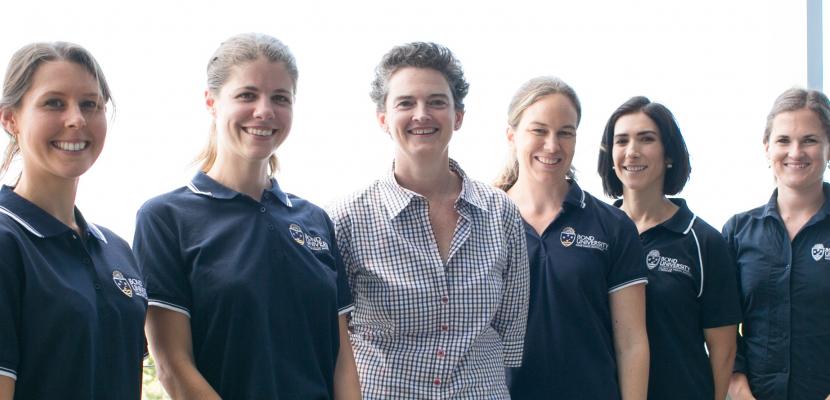
Bond University has launched a new study funded by the National Health and Medical Research Council (NHMRC) that will investigate the ‘famine reaction’ and its impact on dieters’ ability to lose weight.
A major aim of the MATADOR2 study is to answer the age old question of why dropping the kilograms can be so difficult.
The study will look at physiological and behavioural changes that take place as women diet – to see what factors may be helping or inhibiting their ability to lose weight.
Bond University Professor Nuala Byrne, who heads the study with a team of collaborators from Queensland University of Technology, University of Sydney, Mater Research Institute (UQ), and Princess Alexandra Hospital, said research showed 66 per cent of people who lost weight regained it within a year and most within five years.
“As people diet, their bodies make changes to metabolic rate, appetite and neuroendocrine status, which slow weight loss and can promote weight regain, and this is the ‘famine reaction’,” she said.
“At the same time, we also make behavioural changes, such as changing physical activity patterns to reduce energy expenditure and weight loss. Whether this is driven by psychological factors or physiological factors - for example, lethargy due to the famine reaction - is currently unknown.”
Professor Byrne said while the ‘famine reaction’ had helped humans to survive as a species, with food now so readily available, it was contributing to growing waistlines.
Research shows 27 per cent of Australian adults are obese and a further 35 per cent overweight.
“We are here today as a species because we store energy well, which worked in our favour at a time when food availability was inconsistent,” said Professor Byrne.
“If you think of it like a car, you don’t want a fuel tank that constantly needs to be topped up. You need to be able to put in a lot of fuel and then travel a long distance before needing to refuel.
“We are very good at storing ‘fuel’ but with new supply so readily available, it is causing this fuel retention or weight gain problem.”
Professor Byrne said the more energy intake was restricted, the larger the level of compensation by the body to store energy as a ‘survival’ instinct.
“When we go back to an energy-balanced diet, we can reverse these compensatory changes – the ‘famine and feast’ concept we witness with animals that don’t have a consistent food source,” she said.
“What we know is people vary considerably in their capacity to lose weight, and this research will help us better understand the biological and behavioural determinants that cause this.
“With it estimated that some 46 per cent of women have dieted in the previous year, understanding these factors will allow us to provide the best possible advice for those wanting to lose weight.”
Professor Byrne said 50 women, aged between 25 and 55 and with a body mass index of 30 to 40kg/m2 who have maintained a stable weight for at least six months, are needed to take part in the 30 week program.
The study will involve both an ‘intensive’ component, with all the food provided and women required to attend weekly or fortnightly check-ins. A, ‘community’ based component, where women are encouraged to follow a prescribed diet, while making their own food decisions, will be undertaken in 2016.
Professor Byrne said men who participated in a similar previous study lost an average of more than 8 per cent of their body weight.
“All the food is supplied for women taking part in the intensive study, so there is no guess work for them,” she said.
“We will manage the whole process, with a team that is positive about assisting people to make these changes and who are sensitive to the psychological challenges that come with losing weight”.
“We will also be providing a report at the end of the study, giving advice on what they could do next to continue or maintain their weight loss, and will be undertaking three and six months follow ups, so those who take part will have ongoing support.”
The study will be conducted from Bond University’s main campus with some testing at the Bond Institute of Health and Sport (BIHS), located adjacent to the Cbus Super Stadium in Robina.